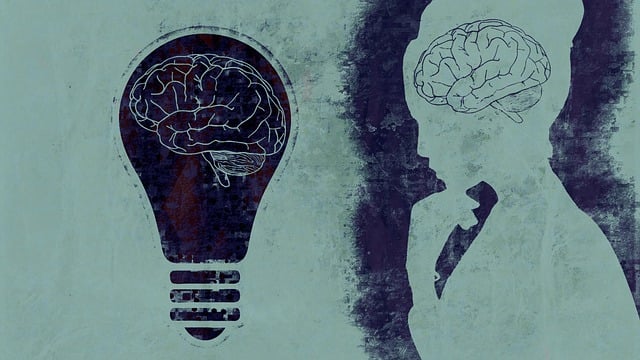Healthcare provider burnout, especially among mental health professionals treating young adults, is a growing concern impacting patient care and system efficiency. Long work hours, high-stress environments, heavy caseloads, and complex personal issues like gambling addiction contribute to this issue. Effective strategies include conflict resolution techniques, risk management planning, and advocacy for comprehensive Mental Health Policy Analysis. Early intervention through mindfulness, compassion cultivation, and cognitive-behavioral therapy (CBT) can prevent burnout. Community outreach programs support recovery, destigmatize mental health challenges in medicine, and promote work-life balance, reducing the risk of Therapy for Young Adults Gambling-related burnout.
Healthcare provider burnout is a growing concern, impacting not just individuals but the overall quality of patient care. This article delves into strategies to prevent burnout among healthcare workers, focusing on early identification of risks and warning signs. We explore effective prevention methods, including novel approaches like therapy for young adults gambling, emphasizing support tailored to this demographic’s unique challenges. By understanding and addressing these issues, we can foster a healthier, more resilient workforce.
- Understanding Burnout Among Healthcare Providers
- Identifying Risks and Early Warning Signs
- Effective Prevention Strategies
- Supporting Young Adult Healthcare Workers: A Focus on Gambling Therapy
Understanding Burnout Among Healthcare Providers

Healthcare provider burnout is a growing concern within the industry, impacting not only individual practitioners but also patient care and system-wide efficiency. Understanding burnout among healthcare providers involves recognizing the unique challenges they face, such as prolonged work hours, high-stress environments, and heavy workloads. This issue is particularly prevalent in fields like mental health, where professionals often deal with complex cases and emotional demands that can lead to stress and dissatisfaction. The impact of burnout extends beyond the individual, affecting patient outcomes and the overall sustainability of healthcare services.
In the context of young adults, therapy and support services play a crucial role in addressing emerging mental health issues. However, providers in these settings also face distinct challenges, including managing high caseloads, dealing with complex personal issues, and navigating sensitive topics like gambling addiction—a growing concern among younger demographics. Incorporating effective conflict resolution techniques and risk management planning for mental health professionals is essential in fostering a healthier work environment. Additionally, advocating for comprehensive Mental Health Policy Analysis can help mitigate burnout risks by ensuring adequate resources, support systems, and recognition of the vital role these providers play in shaping young adults’ well-being, potentially reducing gambling-related issues through early intervention.
Identifying Risks and Early Warning Signs

Burnout among healthcare providers is a growing concern, especially with the demanding nature of modern medical practice. Identifying risks and early warning signs is vital for prevention. Healthcare professionals often face high-stress situations daily, which can lead to emotional exhaustion if unaddressed. For young adults, who might be navigating career challenges alongside personal growth and development, the risk is even higher. Therapy for young adults gambling, for instance, highlights a potential intersection of mental health issues and burnout.
Recognizing signs like increased irritability, insomnia, or a decline in patient care quality can prompt much-needed interventions. Emotional healing processes such as mindfulness and compassion cultivation practices have shown promise in preventing burnout. Additionally, conflict resolution techniques can help manage workplace stress, fostering healthier professional dynamics. Early detection and implementation of these strategies could significantly mitigate the risks of healthcare provider burnout.
Effective Prevention Strategies

Preventing burnout among healthcare providers is a multifaceted approach that requires strategies tailored to address specific challenges. For young adults grappling with gambling addiction and its associated anxiety, therapy serves as a cornerstone in prevention. Cognitive-behavioral therapy (CBT) has proven effective in managing both gambling addiction and related anxiety disorders. By helping individuals identify and change negative thought patterns and behaviors, CBT empowers them to develop healthier coping mechanisms, thereby reducing stress and burnout risk.
Complementing individual therapy is the Community Outreach Program Implementation, which fosters a support network that extends beyond clinical settings. These programs often include peer support groups, education sessions on mental health, and skills training in conflict resolution techniques. Mastering conflict resolution can significantly mitigate workplace tensions, promoting healthier interactions among healthcare providers and ultimately creating a more positive work environment.
Supporting Young Adult Healthcare Workers: A Focus on Gambling Therapy

Healthcare providers, especially young adults, face unique challenges that can lead to burnout. In addition to demanding work schedules and high-stress environments, issues like financial strain and a lack of work-life balance contribute significantly to their mental health struggles. Gambling therapy offers a promising avenue for addressing these concerns among young adult healthcare workers. This form of therapy recognizes the intersection between gambling addiction and underlying mental health issues, often present in individuals who are under significant pressure and stress.
Targeting this demographic with specialized support is crucial. Public awareness campaigns can play a vital role in destigmatizing mental health challenges within the medical field. Mental wellness podcast series production can also provide accessible platforms for sharing strategies to cope with stress, build resilience, and promote self-esteem improvement. By combining public education efforts with tailored therapeutic interventions, we can create a supportive ecosystem that nurtures the mental wellness of young adult healthcare workers, ultimately preventing burnout and fostering sustainable careers in patient care.
Healthcare provider burnout is a pressing issue, but with proactive strategies, it can be mitigated. By understanding burnout’s intricacies, identifying risks early, and implementing effective prevention tactics like supporting young adults through therapy for gambling, we can foster healthier work environments. These measures are vital to ensure healthcare providers’ well-being and maintain the quality of patient care.














